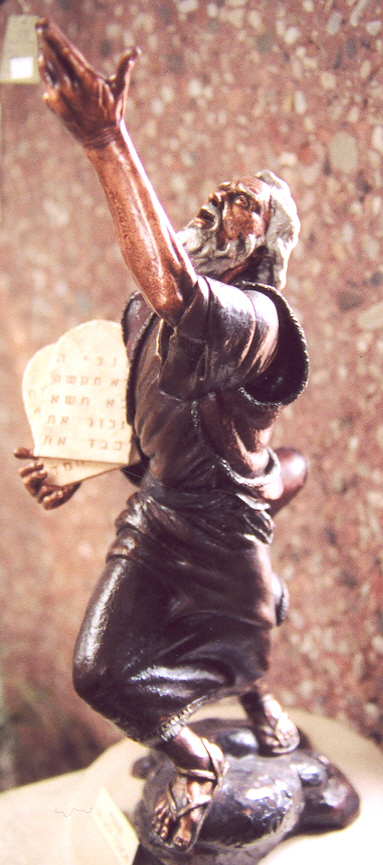
Return to
Index The Catholic Faith
Return to Level
Two Topic Index
Home Page

You will find very few things around you that someone does not own. The things around us may be owned by a group of people like a company, or by a larger community such as a city, state, or nation, or by a single person. Every person has the right to own property; groups have the same right. This requires respect for the right of ownership; all have the right to have their possessions safe from theft, damage, and destruction.
These rights are protected by the Seventh Commandment: "You shall not steal." This commandment regulates how we handle other peoples' possessions or property. It forbids the unjust taking of what belongs to another. If I take your camera without asking you, I am guilty of theft. To be free from guilt I must return what I have stolen or replace it if I can, as well as confess my sin if the matter is serious. If I purposely damage your camera so it will not take pictures, I have destroyed it, and justice demands that I make restitution - that is, pay for the damage.
We must have nothing to do with stolen property, even if we didn't steal it ourselves. Neither can we claim to own something that belongs to someone else - as for example, when one student copies another's homework. Such a student is guilty of both stealing and lying, since he presents the work as his own.
On Loan
There are questions which come up about our duties and obligations when we make rightful use of another's property by permission. Perhaps, we have borrowed a camera to see how we like it before buying one of our own. Then we must return it in the same condition in which we received it. So too, in a store, we must handle merchandise with care and be honest if we damage something. We must always pay back in full all loans and debts; if we don't we are stealing.
The Seventh Commandment also forbids any kind of deception or breach of contract in our dealings with others' property. This is called fraud. There is another evil practice called usuary in which someone loans money at an excessively high rate of interest. This is a very bad thing, for someone who practices it is making money out of another person's great need. We are also required to be just in payment for services or goods bought. We must always pay a worker what he has earned.
The Tenth Commandment, "You shall not covet your neighbor's goods", is meant to direct our desire for possessions. There are two very common ways in which people break this commandment: envy and avarice. Both reveal that something is wrong with the way a person looks upon material goods. Envy is being resentful of another's success. The envious man is unhappy because he wants what another man has. Avarice is like greed. The avaricious man has an excessive desire for wealth. He always wants more, no matter how much he already has.
Justice and Charity
There are certain societies in which the right to own private property is denied. However, the right to private property is acknowledged by God in the Ten Commandments. He would not condemn stealing if nobody were to own anything.
Stealing is wrong because it is unjust. Thus, justice is the virtue that protects personal possessions. Justice obliges me to make restitution if I steal. It obliges my employer to pay me my due wage and obliges me to earn it with honest labor. But the right to private property, protected by justice, is not a sufficient foundation for the happy life of a a society; charity is needed.
For instance, the right to property may be acknowledged by everyone, while at the same time some persons have more than they need - even much more - and others do not have even a minimum required by human dignity. Should my possessions, if they are many, be taken away from me to give to the poor? Would that be just? If not, should I forget the poor? Charity obliges me to share what I have with those who need decent food, clothing, and shelter. If people are in extreme need, then the taking of what is necessary to maintain life is not stealing since it is not the unjust taking of another's property. Jesus identifies himself with the poor when he says" Come, You have my Father's blessing! Inherit the Kingdom prepared for you from the creation of the world. For I was hungry and you gave me food, I was thirsty and you gave me drink. I was a stranger and you welcomed me, naked and you clothed me. I was ill and you comforted me, in prison and you came to visit me. . . . I assure you, as often as you did it for one of my least brothers, you did it for me. (Mt 25:34-36, 40)
Used with the permission of The Ignatius Press 800-799-5534
Return to
Index The Catholic Faith
Return to Level
Two Topic Index
Top
Home Page